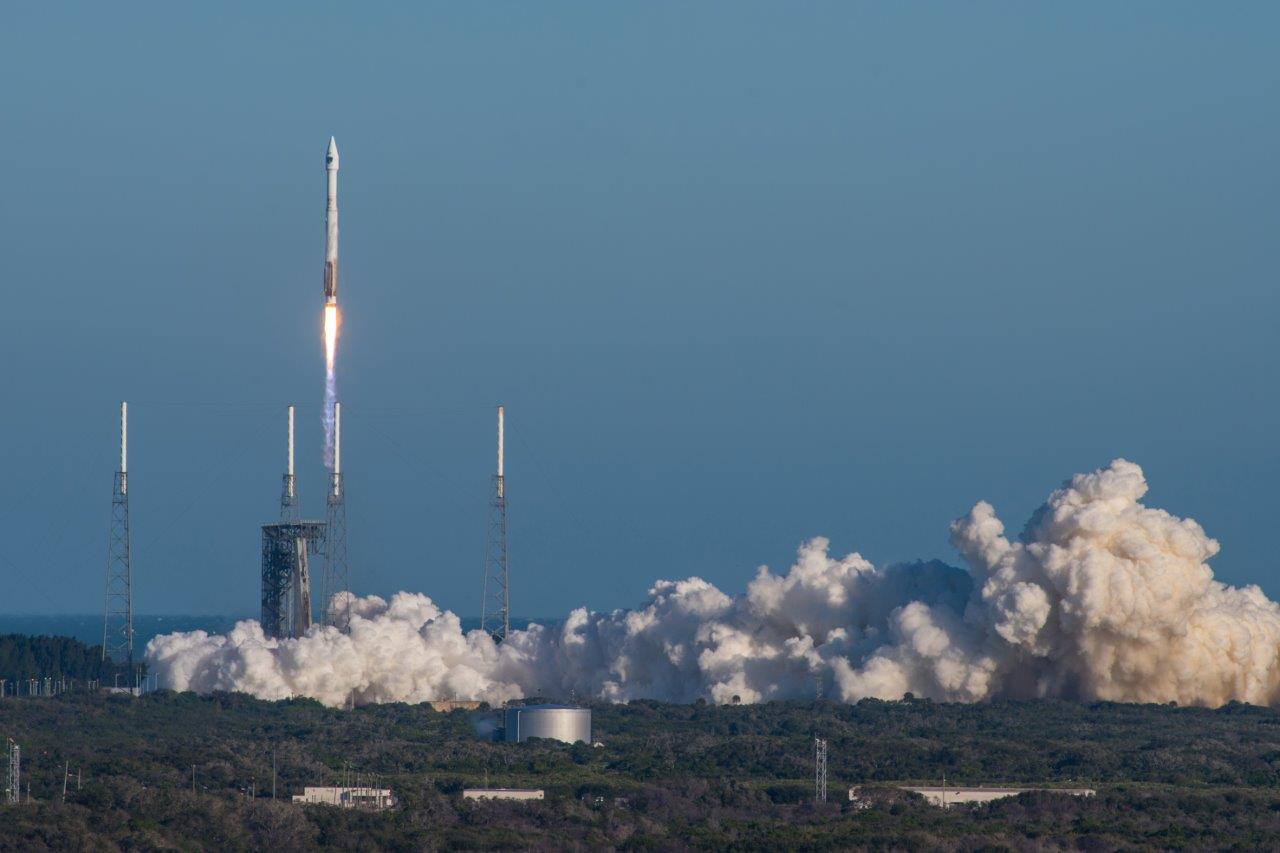Orbital ATK Believes in Satellite Servicing, But Not Rocket Reusability

Breaking space news, the latest updates on rocket launches, skywatching events and more!
You are now subscribed
Your newsletter sign-up was successful
Want to add more newsletters?

Delivered daily
Daily Newsletter
Breaking space news, the latest updates on rocket launches, skywatching events and more!

Once a month
Watch This Space
Sign up to our monthly entertainment newsletter to keep up with all our coverage of the latest sci-fi and space movies, tv shows, games and books.

Once a week
Night Sky This Week
Discover this week's must-see night sky events, moon phases, and stunning astrophotos. Sign up for our skywatching newsletter and explore the universe with us!

Twice a month
Strange New Words
Space.com's Sci-Fi Reader's Club. Read a sci-fi short story every month and join a virtual community of fellow science fiction fans!
MUNICH — Satellite and rocket builder Orbital ATK on March 1 said it would begin substantial investment this year into a commercial satellite in-orbit servicing vehicle that should be operational by early 2019 without any government development support.
The company said it is also throttling up spending on a new launch vehicle with substantially more lift capacity than its newly re-engined Antares rocket, with early development co-funded by the U.S. Air Force.
The new vehicle, which will target commercial and government satellite markets, will not include any of the reusability features that competitors SpaceX and United Launch Alliance have incorporated into their rocket designs.
Addressing a conference call with investors, Dulles, Virginia-based Orbital ATK Chief Executive David W. Thompson said he has not bought the hype over reusability's near-term business case.
"It may be intuitively appealing. We don't throw airplanes away and so on," Thompson said, referencing the pro-reusability argument often employed by Hawthorne, California-based SpaceX. "Past experience with launch vehicle reusability has been mixed at best in terms of achieving sustainable cost reductions. So I am a skeptic with regard to many of the claims that have been made for cost reductions."
The wave of interest in reusable rockets that started with SpaceX's Falcon 9 rocket's spectacular attempts to return its first stage to Earth intact has spread beyond the United States to Europe and even to Asia.
European governments that are spending several billion dollars on a next-generation Ariane 6 rocket are regularly peppered with questions as to why, given the SpaceX program, Ariane 6 has no reusability feature.
Breaking space news, the latest updates on rocket launches, skywatching events and more!
Thompson outlined the skeptics' case:
"It's still too early to say whether in the real world — of launch rates and refurbishment cost and payload penalties and so on that relate to reusability – whether it's going to make economic sense to reuse some or a large part of the launch vehicle," Thompson said.
"Our system does not contemplate reusability. We'll have to wait to see whether that's a good judgment or not," he said.
Orbital surprised investors by announcing that, while it is steering clear of reusable rockets, it's going all-in on three investments that will consume a combined $75 million in free cash flow in 2016 and between $250 million and $300 million in cash in the next three years.
Thompson said that, once fully operational at the end of the decade, the three projects could generate $500 million in incremental annual revenue. He declined to provide the split among the three – a new generation of precision weapons, the new launch vehicle and commercial satellite in-orbit servicing – both in terms of spending and revenue potential.
Orbital's more-muscular launch vehicle is being co-funded with the U.S. Air Force. In 2016, the Air Force is contributing $50 million in research; Orbital's share this year is $30 million.
Thompson said the new vehicle would borrow on the former ATK business relating to solid-fueled rockets, and ongoing ATK work on NASA's Space Launch System and would feature a liquid-fueled upper stage that he declined to detail.
The three investments, he said, all carry internal rates of return that are more than acceptable – between the mid-teens to nearly 30 percent. Here too he declined to say which was which.
The satellite in-orbit servicing project has no government support now and none is expected, Thompson said. While the government will surely be a customer, the business is a conventional commercial effort.
Thompson said the company would be announcing details of the project, including one or more anchor-customer agreements, later this year.
Closing the business case on a system that would service telecommunications satellites in geostationary orbit – refueling is the principal mission, but minor repairs are also a possibility – has scuttled multiple servicing projects in the past. Insurance issues abound, both for a service provider and for the company whose satellite is being serviced.
Thompson said Orbital's vehicle borrows from the company's GEOStar satellite design combined with elements from the Cygnus cargo vehicle's autonomous rendezvous technology and ATK's work on servicing NASA's Hubble Space Telescope.
The first of these new geosynchronous orbit-servicing vehicles will commence operations in early 2019 "if the project proceeds as expected," Thompson said.
Orbital was shut out of the latest NASA order for follow-on cargo-supply missions under the Commercial Resupply Services contract that dates from 2008. SpaceX won all five of the missions ordered by NASA in December. Thompson said they company hopes for one or two more missions from NASA to serve as gap-fillers before the CRS-2 contract begins in 2019.
Orbital is one of three companies – SpaceX and Sierra Nevada Corp. of Sparks, Nevada, are the other two – that have won contracts for an undetermined number of supply runs to the space station between 2019 and 2024.
CRS has been a nicely profitable business for Orbital and CRS-2 "will have improved terms relative to CRS-1," Thompson said, adding that Orbital was counting on 10-12 CRS-2 missions over the contract's life.
This story was provided by SpaceNews, dedicated to covering all aspects of the space industry.
Peter B. de Selding is the co-founder and chief editor of SpaceIntelReport.com, a website dedicated to the latest space industry news and developments that launched in 2017. Prior to founding SpaceIntelReport, Peter spent 26 years as the Paris bureau chief for SpaceNews, an industry publication. At SpaceNews, Peter covered the commercial satellite, launch and international space market. He continues that work at SpaceIntelReport. You can follow Peter's latest project on Twitter at @pbdes.
